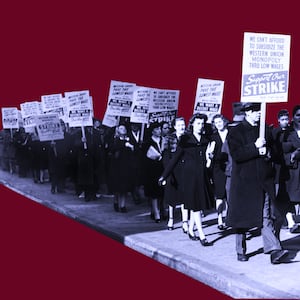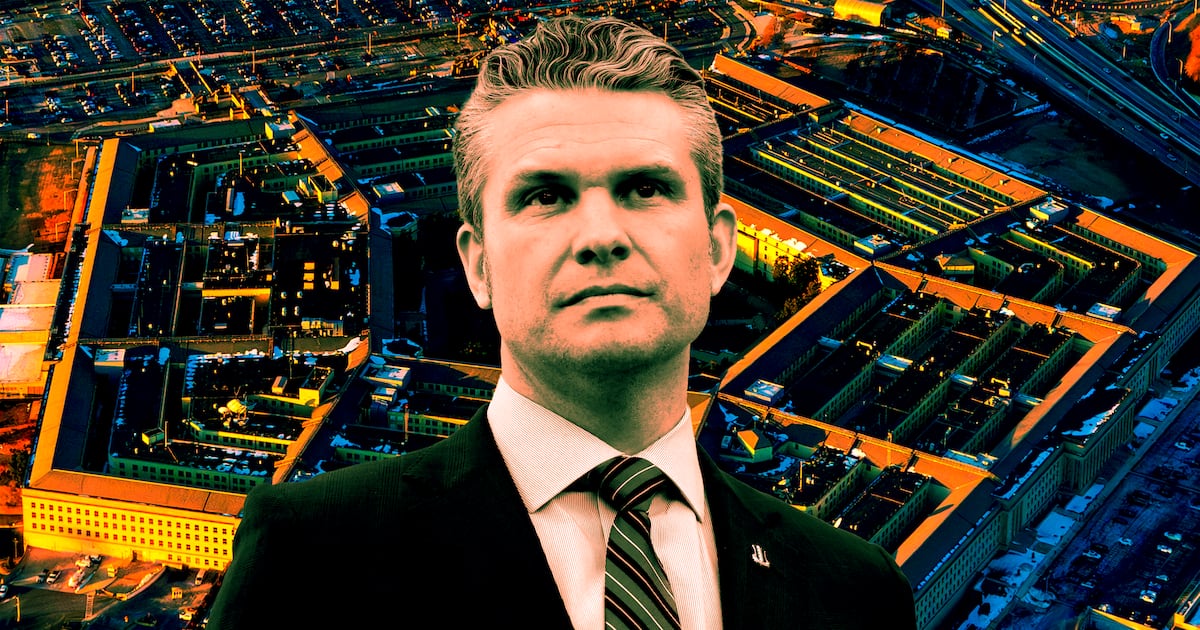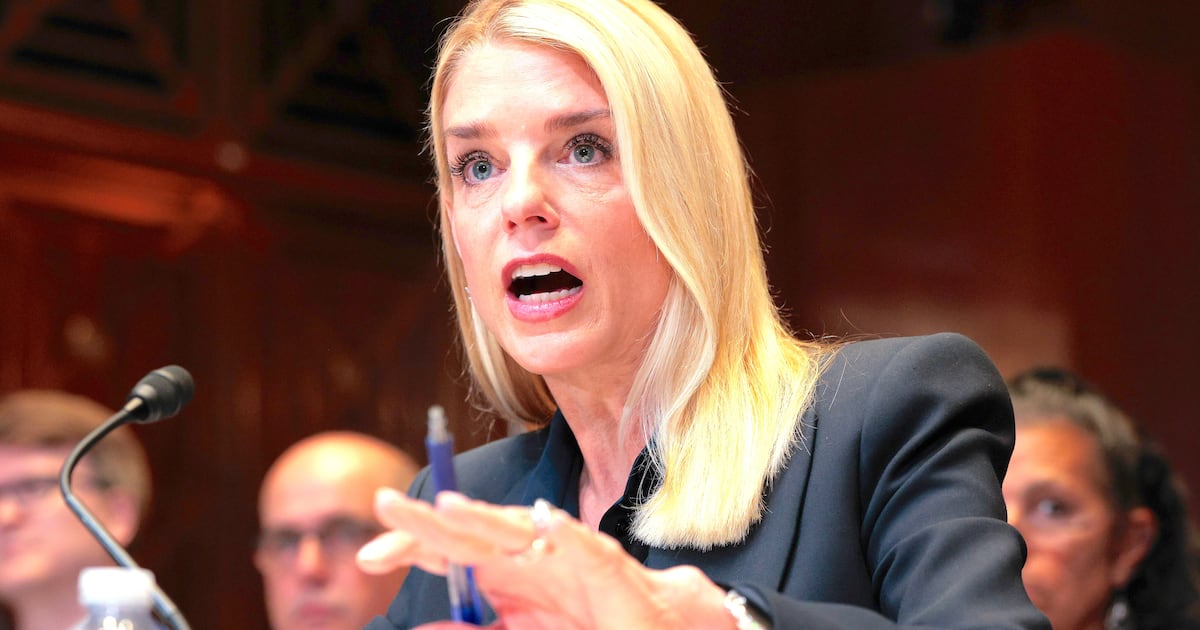Last week employees at a Starbucks in Buffalo, New York, successfully organized the company’s first union at a corporate-owned location. At the same time, Gen Z’s army of TikTok creators linked virtual arms with striking workers at Kellogg’s, using their internet savvy to hobble the breakfast titan’s efforts to undermine the strike by hiring scab workers.
America’s labor movement is experiencing a renaissance year after decades struggling with declining union membership and an increasingly fraught position in America’s changing economy. Democrats including President Joe Biden rightly argue that strengthening the labor movement is the quickest path to rebuilding our struggling middle class. Yet on the airwaves and in print, labor’s incredible story is almost invisible.
If Biden and Democrats want to drive their winning pro-labor message home, it will take more than a few one-off campaign stops. They’ll need a full-on campaign messaging strategy that treats the renewed labor movement as equal to Biden’s signature, extensively marketed bipartisan infrastructure deal.
Biden at least mentions unions frequently, but many other Democrats don’t even do that, and getting voters to connect the dots is going to require clear and consistent messaging from a party that so far has failed to tie itself to or capitalize on a year of big wins for organized labor.
2021 was always going to be a perfect storm for union organizing. “Multi-year contracts between union workers and companies like Frito-Lay, Nabisco, John Deere, and Kellogg’s all expired this year, which naturally set up opportunities for conflict,” Jordan Zakarin, a labor advocate and media producer at the progressive media organization More Perfect Union, told The Daily Beast. “After 20 years of forcing concession after concession from their dwindling unionized workforces, management had become used to just steamrolling over union negotiators.”
What overconfident executives didn’t expect was a wave of younger workers whose late-capitalism user experience has been less than positive.
“[Gen Z] grew up watching their classmates getting shot in school, they’ve taken on impossible student debt, starting wages have stagnated,” Zakarin says. “They have no real reason to believe in this system or participate in a way that offers this nightmare any legitimacy.”
The new wave of labor enthusiasm should be catnip for Democrats. On a fundamental level, labor organizing represents a type of left-progressivism that even conservative Democrats like Sen. Joe Manchin feel safe supporting. Manchin recently lent his considerable influence to advancing the Protecting the Right to Organize (PRO) Act in the Senate, putting the West Virginian in an unlikely alliance with Vermont Senator and democratic socialist Bernie Sanders and New York Rep. Alexandria Ocasio-Cortez.
Manchin, who through a spokesperson declined multiple requests to comment for this article, can get away with that unlikely partnership because over 6 in 10 Americans approve of labor unions, down only slightly from 7 in 10 at the height of modern labor organizing in the late 1930s. And white working-class voters, a group Democrats have lost decisively in recent elections, are more likely to support Democrats when elections focus on strengthening and protecting unions.
But Democrats can only reap the benefits of labor’s new energy if they are willing to make it a messaging priority that stretches beyond their home states.
“There’s been a full year now of arguments and hand-wringing from people in Washington about how Democrats can win back working class voters,” Zakarin warns. “The answer is literally marching right in front of our eyes.”
There’s a kneejerk tendency among progressives to blame the “corporate media” for hiding progressive victories and muzzling pro-labor voices. Cable news outlets are often guilty of underestimating viewer interest in stories about labor organizing, but Democrats’ haphazard messaging efforts are making it that much easier for news producers to overlook labor’s recent landmark gains.
In a blog post for MSNBC published Tuesday, The Rachel Maddow Show producer Steve Benen argued that Biden declaring himself “deeply troubled” about Kellogg’s anti-worker retaliation backs up the president’s claim to be “the most pro-union president you’ve ever seen.” Benen cites “anecdotal evidence” that union members supported Biden’s remarks. And that’s the problem.
Benen didn’t intend for his post to be an indictment of Democrats’ lackluster messaging, but it’s an example of how the party has struggled to lean in even as labor movement momentum grows. Instead of putting Biden front-and-center at the Kellogg’s picket line, the White House released a dry statement expressing the president’s vague sense of disappointment in Kellogg’s. Democrats can’t expect voters to prioritize labor issues if their leaders are not.
A huge part of the labor movement’s struggle for visibility comes from a corporate media that has already decided how it will frame America’s economic tumult. And with the Democratic messaging shop still struggling to deploy a coherent economic message, cable news outlets are left to debate the GOP’s neatly packaged economic spin about inflation instead of celebrating a historic contract victory for the 14,000 John Deere workers who spent months pushing for better treatment from management.
That’s a huge disappointment, because congressional Democrats have passed a number of beefy measures—not least the $1.2 trillion bipartisan infrastructure bill—that are packed with measures long-sought by labor leaders. But the meat of that agenda, including billions of dollars in local spending that will generate 40,000 union jobs in Allegheny County, Pennsylvania, alone, hasn’t trickled down to voters convinced that Democrats have delivered nothing but higher inflation.
Democrats should “use the passion and anger of this generation who are committed to not making the mistakes of the past,” says Rick Smith, host of the Pennsylvania-based Rick Smith Show. Smith, whose show often focuses on labor and union issues, thinks Democrats could regain control of their bruised public image by fast-tracking pro-union legislation. “Do something. Pass the PRO Act, ban Right to Work, and repeal Taft-Hartley.”
To do that, Democrats will need to stop selling numbers and start telling stories. That’s a home run proposition given Biden’s gift for connecting with voters on a human level. In a conversation choked with numbers—budget toplines, CBO scores, inflation projections—what Americans need is someone to explain what those numbers mean to their day-to-day lives.
“Do you know how you talk about inflation? It’s corporate greed, and if you want to fight that you need labor unions,” 32BJ SEIU Communications Director Tyrone Stevens advises.
“It’s great that Biden talks about unions. But every time he says ‘I know people are hurting, but here’s what we’re doing,’ he’s offering a message no one wants to hear. We did that playbook with Obama in 2010 and we got wiped out.”
More than any messaging advantage it offers, Democrats owe it to their labor base to offer more than words—even if those words come from Biden in a primetime Oval Office address. Our Revolution PAC, a Sanders-aligned progressive group, recently kicked off a nationwide campaign to pass the stalled PRO Act. In a year that exposed a number of open Democratic divides, standing behind America’s labor unions could provide Democrats with an eleventh-hour opportunity to lower the political temperature and remind voters that for all of their working class talk, Republicans in state legislatures across the nation are championing an unprecedented effort to dismantle unions and gut the job and salary protections they offer.
Joe Biden and Democrats value their relationship with labor. That much is clear from their strong legislative record. But until Democrats can recapture the airwaves and push back against the GOP’s targeted spin operation, labor unions will continue to thrive in the shadows, blocked out of mainstream attention despite posting a run of historic victories for workers in red and blue states across the country. That media blackout won’t just hurt Democrats; it could undermine the most promising advances in organized labor in a generation.








